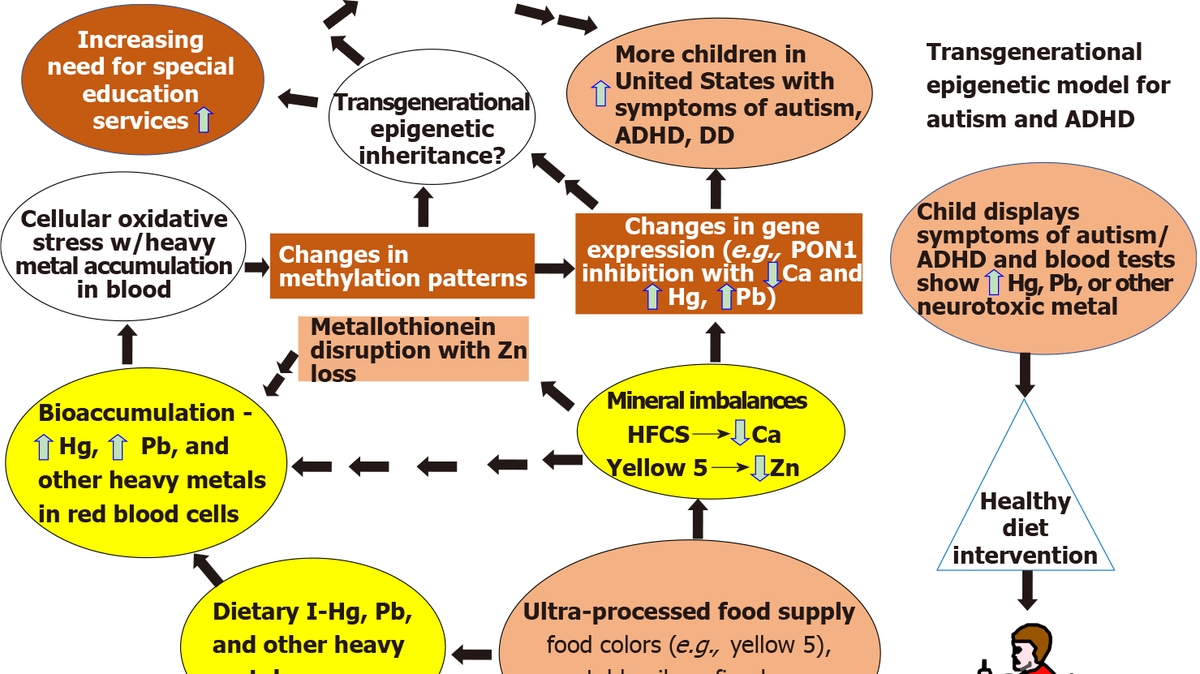
Nutritional Epigenetics: A Game-Changer in Managing Autism and ADHD
The world of medicine and health is constantly evolving, and the latest revelation is that nutritional education can play an instrumental role in managing autism and attention deficit/hyperactivity disorder (ADHD). A recent study by the Food Ingredient and Health Research Institute has shown that parents who received nutritional epigenetics education significantly reduced their consumption of ultra-processed foods, while increasing their intake of whole and/or organic foods.source
Link Between Ultra-Processed Foods and Neurodevelopmental Disorders
The study keenly points out the connection between the consumption of ultra-processed foods and the development of autism and ADHD. It emphasizes the harmful effects of heavy metal exposures, dietary deficits, and mineral imbalances that these foods may cause. These factors can lead to disruptions in gene function and increased susceptibility to heavy metal and pesticide exposures in children with autism and ADHD. The findings also underscore the urgent need to address the issue of heavy metals in baby foods, which further reinforces the need for dietary changes.source
Power of Nutritional Epigenetics Education
One of the key elements of this study is the power of education. Nutritional epigenetics education, developed by Dr. Renee J Dufault, serves as a tool to empower parents to make informed dietary decisions for their children. It includes learning to read food labels, understanding the potential hazards of ultra-processed foods, and recognizing the benefits of whole and organic foods. This education intervention has shown promising results, leading to a decrease in children’s dietary exposure to heavy metal and organophosphate pesticide residues.source
Impact of Dietary Changes on Children with Autism and ADHD
The study found that reducing the consumption of ultra-processed foods can lead to improvements in behavior, cognition, and gut health in children with autism and ADHD. This suggests that a shift in diet can potentially reduce the prevalence of these neurodevelopmental disorders. These findings not only provide hope for families struggling with these conditions but also represent a call to action for wider society to reassess our dietary habits and food production standards.
Need for Regulatory Changes in Food Supply
The findings of the study also highlight the urgent need for regulatory changes in the food industry. The high prevalence of heavy metals in baby foods is a significant concern. Therefore, changes are needed to reduce allowable heavy metal residues in the ultra-processed food supply. Regulatory bodies need to enforce stricter standards to ensure the safety of our children’s food supply. This will not only protect their current health but also minimize the risk of neurodevelopmental disorders.
Conclusion
The findings of this study underscore the importance of diet in managing autism and ADHD. Nutritional epigenetics education can serve as a powerful tool for parents, empowering them to make informed dietary choices. This approach could potentially reduce the prevalence of these neurodevelopmental disorders and improve the overall health and quality of life for children diagnosed with autism and ADHD. The study also sheds light on the urgent need for regulatory changes in the food industry to safeguard our children’s health.
